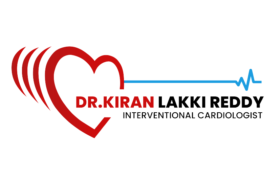FAQ
HAVE ANY QUESTIONS
Recently Asked Questions

A cardiologist is a medical doctor specializing in the diagnosis, treatment, and prevention of heart and cardiovascular diseases. They are trained to evaluate symptoms, perform diagnostic tests, provide appropriate treatments, and offer guidance for maintaining heart health.
You should consider seeing a cardiologist if you experience symptoms such as chest pain, shortness of breath, heart palpitations, dizziness, or swelling in the legs. Additionally, if you have a family history of heart disease or risk factors like high blood pressure, high cholesterol, or diabetes, it is advisable to consult with a cardiologist for preventive care.
Cardiologists diagnose and treat a wide range of heart-related conditions, including coronary artery disease, heart attacks, heart failure, arrhythmias (abnormal heart rhythms), valvular heart diseases, congenital heart defects, and hypertension (high blood pressure). They also play a vital role in cardiac rehabilitation and managing risk factors for heart disease.
Cardiologists use various diagnostic tools to assess heart health, including physical examinations, medical history evaluations, electrocardiograms (ECGs/EKGs), echocardiograms, stress tests, cardiac catheterization, and angiography. These tests help cardiologists determine the presence and severity of heart conditions and develop appropriate treatment plans.
GENERAL QUESTION
Recently Asked Questions
Cardiologists employ both non-invasive and invasive procedures to treat heart conditions. Non-invasive treatments may include lifestyle modifications, medication management, and cardiac rehabilitation. Invasive procedures can involve angioplasty, stenting, cardiac ablation, pacemaker implantation, and coronary artery bypass surgery. The treatment approach depends on the specific condition and individual patient needs.
Yes, many heart diseases can be prevented or managed through a healthy lifestyle. Cardiologists often emphasize the importance of maintaining a balanced diet, engaging in regular physical activity, avoiding smoking, managing stress, and controlling risk factors like high blood pressure, high cholesterol, and diabetes. Regular check-ups with a cardiologist can help identify potential risks and provide guidance on preventive measures.
The frequency of visits to a cardiologist varies based on individual health conditions and risk factors. Generally, individuals with established heart conditions or a history of heart disease may need regular follow-up visits. For those with no apparent heart issues, periodic visits for preventive care and cardiovascular risk assessment are recommended, typically every 1 to 2 years.
Yes, many cardiologists actively participate in clinical research and contribute to advancements in cardiology. They collaborate with other medical professionals to conduct studies, evaluate new treatment options, and enhance understanding of heart diseases. This dedication to research helps improve patient outcomes and develop innovative approaches to cardiovascular care.
Yes, many cardiologists actively participate in clinical research and contribute to advancements in cardiology. They collaborate with other medical professionals to conduct studies, evaluate new treatment options, and enhance understanding of heart diseases. This dedication to research helps improve patient outcomes and develop innovative approaches to cardiovascular care.
When choosing a cardiologist, consider factors such as their experience, qualifications, specialization, reputation, and patient reviews. It is important to find a cardiologist who communicates effectively, makes you feel comfortable, and involves you in the decision-making process regarding your treatment and care.
While both cardiologists and cardiac surgeons focus on heart-related conditions, their roles and areas of expertise differ. Cardiologists primarily diagnose and manage heart diseases through non-invasive procedures and medications. They perform tests, interpret results, prescribe treatments, and provide long-term care for heart conditions. On the other hand, cardiac surgeons specialize in performing surgical procedures on the heart and blood vessels. They are trained in complex surgeries like coronary artery bypass grafting, valve replacement, and heart transplantations. Cardiologists and cardiac surgeons often work together as part of a multidisciplinary team to provide comprehensive care to patients.
Absolutely! In addition to diagnosing and treating heart conditions, cardiologists play a crucial role in preventive care. They provide guidance on maintaining a healthy lifestyle, managing risk factors, and making necessary lifestyle changes. Cardiologists can offer advice on diet, exercise, weight management, smoking cessation, stress reduction, and medication management to prevent the development or progression of heart diseases. They work closely with patients to develop personalized prevention strategies and monitor their progress over time.
Get In Touch
- +91 90149 44654
- lakki.reddy.63@gmail.com
- CANES - Cardio & Neuro Clinic, 3rd Floor, Tapasavi Commercial Complex, Hi-tension Rd, Kondapur, Hyderabad,
Copyright ©2023 All rights Reserved to Drkiran Lakki Reddy ll Develop & Design by Branding Nuts
